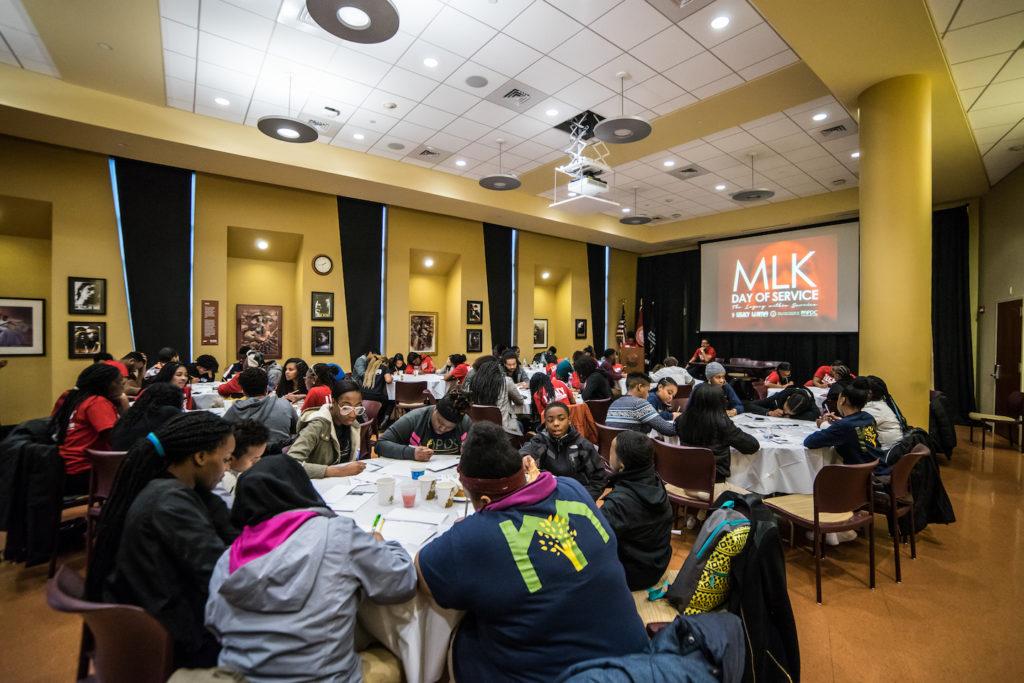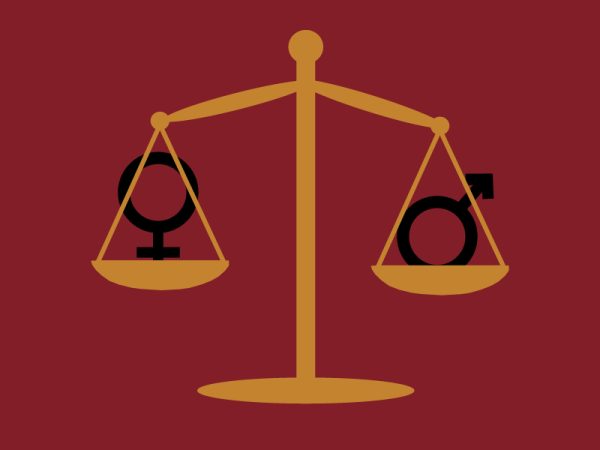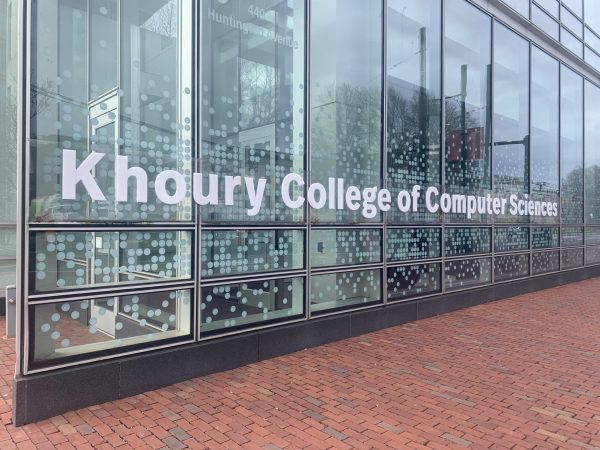NU mentorship program holds Martin Luther King Jr. service day
January 19, 2017
Dozens of Boston area high schoolers asked themselves what Martin Luther King Jr.’s legacy means to them at a day of service held Monday by a Northeastern peer mentoring program.
“I’m glad that the black community—despite how we are seen in society—came together to honor our past and basically appreciate what we ourselves wouldn’t be able to do and basically appreciate what we ourselves wouldn’t be able to do,” said Franklyn Uchendu, a senior at Urban Science Academy high school in West Roxbury.
Uchendu was one of the attendees at the service day organized by Legacy, a peer mentorship program within Northeastern’s John D. O’Bryant African-American Institute, in partnership with Madison Park Development Corporation.
“Our generation now doesn’t really know how it feels when Dr. King was back in action,” Uchendu said. “He experienced things that we wouldn’t experience now that we are here and his work has been accomplished.”
The service day was one of several events across campus this week to commemorate King and promote philanthropic ideas. On top of service days, performances, talks and reflections, paintings from Roxbury’s Museum of the National Center of Afro-American Artists were displayed in Northeastern’s Gallery 360.
Legacy’s day of service was filled with workshops in which high school students analyzed King’s words, created a motivational letter for homeless Boston youth and attended a college student panel. Such events helped honor the importance of service and empower young Bostonians, said Gregory Saint-Dick, Legacy’s student development coordinator.
“Students here feel like they are downtrodden – they feel like their lives are not valued. I try to remind them that there are people less fortunate than them, like homeless youth,” Saint-Dick said. “We as Northeastern University students have the opportunity to not only better ourselves, but better our community. If we have college students taking that first step, we can accomplish a lot.”
Northeastern’s Center of Community Service hosted a separate day of service Monday. Throughout the morning and early afternoon, students chose to complete off-campus community service projects or attend social justice-themed workshops in Curry Student Center.
Some of the workshops dug into issues such as farmers’ and workers’ rights and how gender is perceived in the media. Different workshops were run by Northeastern offices, student groups and partnering organizations.
“It’s a really good way to have our students interact with local students, local youth and also give youth the experience of being on the college campus and being around college students,” said Mark Este, assistant director of civic engagement programs at the Center of Community Service.
A keynote speaker, former Massachusetts Promise Fellow Cliff Notez, premiered the trailer for his social justice film “Vitiligo,” which focuses on the psychological toll of regularly seeing images of police officers killing black people in the streets.
“I think people left the event really energized, either about their topics or about the day in general,” Este said. “That’s something that comes out of being able to offer a space to have conversations about difficult topics.”
A keynote event Tuesday featured actress, singer and songwriter Renée Elise Goldsberry—most well-known for her role in the the musical “Hamilton”— among other speeches and musical acts by Northeastern community members.
The Northeastern School of Law Civil Rights and Restorative Justice Project (CRRJ) and John D. O’Bryant African-American Institute will host “Civil Rights Today and Strategies for the Future,” a civil rights discussion, Thursday. Group members hope to use the discussion to look at possible directions for future advocacy efforts.
“Throughout the university and certainly even broader than that, there are enclaves and communities that are concerned about the future of civil rights,” said Melvin Kelley, a teaching fellow at the CRRJ. “There is an acute sense of wanting to get a better sense of what we can actually do to hold the fort – and hopefully not merely just hold the fort, but continue to make headway on a number of important issues.”
Photo by Lauren Scornavacca


















